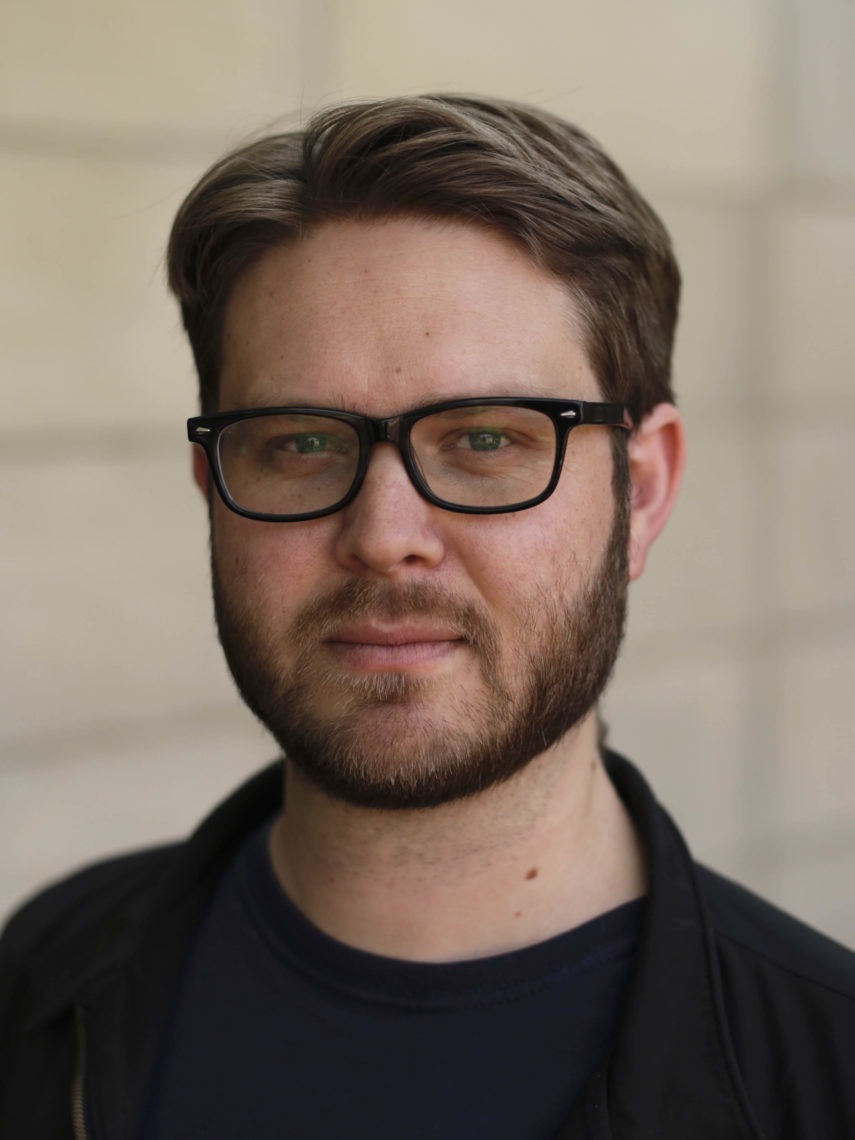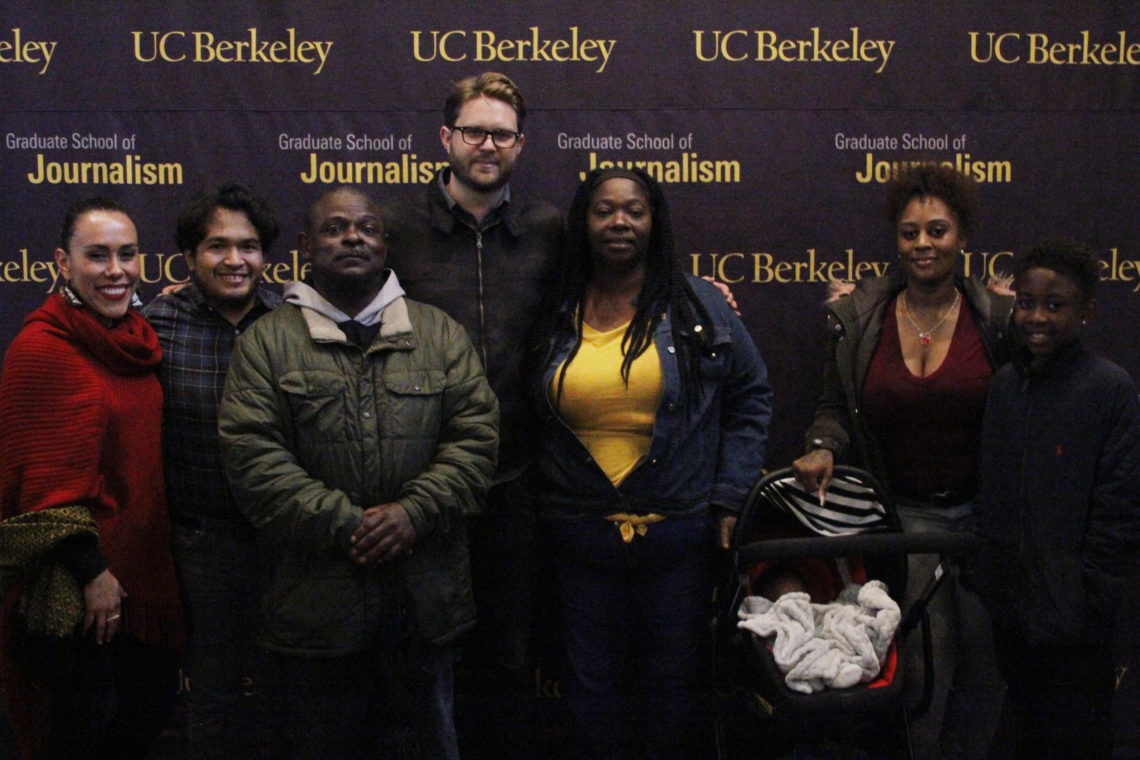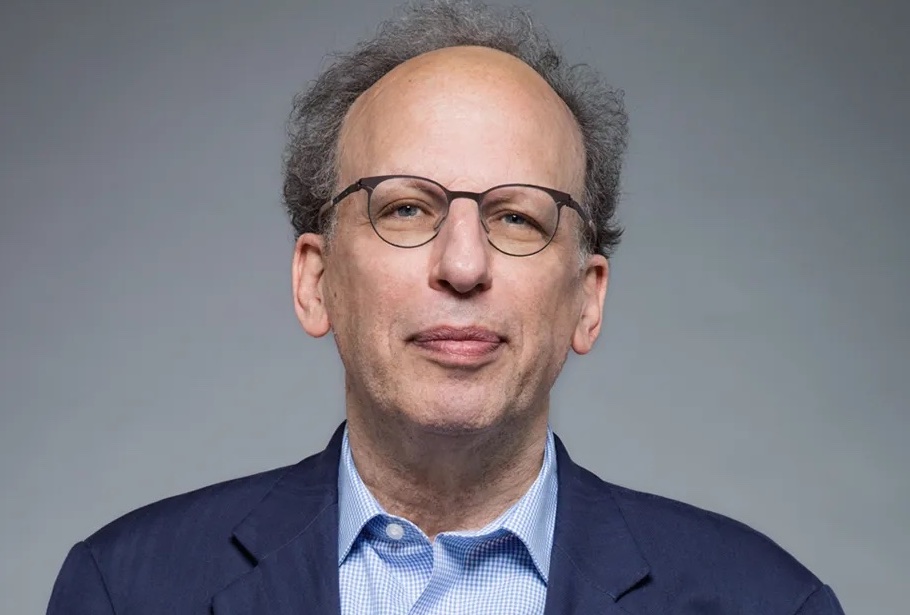
Director and producer Lucas Guilkey’s (‘19) thesis film, “What Happened to Dujuan Armstrong?” has been named one of three documentary finalists in the 2020 British Academy of Film and Television Arts (BAFTA) Student Film Awards.
The recognition follows a string of successes for the film, a deeply reported and beautifully filmed story about a mother’s quest to find out why her son died in an Alameda County, Calif., jail.
“What Happened to Dujuan Armstrong?” was nominated for a Social Impact Media Award (SIMA) and has screened at the Oakland International Film Festival, the United Nations Association Film Festival, the (In)Justice for All Film Festival in Chicago (where it won a Special Recognition award), the Justice on Trial Film Festival in Los Angeles (where it won Best Short Documentary), the March on Washington Film Festival in Washington, D.C. (where it won Best Student Documentary), and at community gatherings throughout the Bay Area.
It also won a 2019 North Gate Award for Excellence in Documentary Production, the most prestigious award bestowed on students annually by Berkeley Journalism’s documentary faculty.
“Lucas’s documentary reflects the passion and focus of Berkeley Journalism on revealing and relaying stories of grave injustice that can raise awareness and change the world,” said Geeta Anand, interim dean of Berkeley Journalism. “I could not be more proud of his work and his nomination for this award.”
This is the fourth year students at Berkeley Journalism have been recognized in the BAFTA Awards. In addition to Guilkey, three other students were shortlisted: Sarah Cahlan for “TheirStory,” exploring assumptions about gender roles in prehistory anthropology scholarship, and Karla Caraballo-Torres and Lorin Eleni Gill for “School Crossing,” on the humanitarian crisis in Venezuela and its impact on educating the country’s children.
In 2018, Brad Bailey’s film “Hale,” about Hale Zukas, the grandfather of the disability movement in Berkeley, was one of three finalists for Best Documentary. In 2017, Daphne Matziaraki won not only BAFTA’s Student Award for Documentary but also the Special Jury Prize for her work “4.1 Miles” on the refugee crisis in her native Greece.
The winner will be announced at an August 7 award ceremony.
Marlena Telvick interviewed Lucas Guilkey, via email, about his process:
What got you started on Dujuan Armstrong’s killing and why?
I had been following a wide range of civil lawsuits, activism, and allegations around human rights abuses coming out of Santa Rita, the local “mega jail.” For example, one woman, Candace Steel, was forced to give birth there alone in an isolation cell while deputies ignored her screams for help. Coalitions like Decarcerate Alameda County and lawyers such as Yolanda Huang have been sounding the alarm about this place for years. While in the midst of doing my research, I met Barbara Doss at a protest, and she was such a powerful woman. With the encouragement of my professor Dawn Porter and after getting to know Barbara off-camera, I decided to tell the very inmate personal story of Barbara and her son Dujuan, and through their story also capture the much larger themes of sheriffs’ power, anti-Black racism, and the impact of the criminal legal system on poor and working class people in this country.
Your doc was prescient in the national outrage over George Floyd’s murder at the hands of police. Why was his murder different? What role did the video play? What else do Dujuan and George share?
Man… Like George Floyd, Dujuan Armstrong was a working Black person seeking to survive in this violently unequal and racist world. Then he was suffocated to death by agents of the state. Unlike George Floyd, his death was not caught on tape or covered by national news outlets. Rebellions like those catalyzed by George Floyd’s death are in part because police beat, maim, surveil, harass, stop, frisk, and kill folks like Dujuan everyday and entire families and communities are just made to endure it. Barbara and Dujuan’s story is infuriatingly not unique. Neither is George Floyd’s. But there are those times that a critical mass of people reach their breaking point. Dujuan, though, I think is representative of folks inside prison and jail walls, where there is much less transparency. As one man incarcerated in a California state prison implored me to share the other day: The same racist police violence we see on the streets happens everyday in courtrooms and prisons, but that knowledge hasn’t necessarily reached the mainstream in the way it has for police violence.
You brought his family to the Class of 2019 Showcase premiere screening of your thesis film. You’ve gotten close to them…
As a straight, white, male filmmaker, I am hyper-aware of the history of extractive filmmaking from people like me, and I seek to be a part of the growing Decolonize Docs movement. It’s important for me to recognize that my primary collaborator on this film was Barabara Doss. She let me into her private, vulnerable, inner emotional life. I seek to utilize any platform this film obtains also as a platform for Barbara. During the school’s premiere screening, of course I invited her. We’ve used the film to fundraise for her and her family. There would be no film without her.

Lucas Guilkey (center) and JoBill Muñoz (second from left) with the family of Dujuan Armstrong at the 2019 UC Berkeley Graduate School of Journalism Showcase. Photo: Maria Sestito (’20)
What’s the appeal about making documentaries: Is it the shooting, the research, framing a story from beginning to end? When did you start?
I was lucky that I learned the basics of documentary filmmaking in high school, but didn’t come back to it until after my undergrad education. We live in a world of such information overload that what I love about documentaries is they can cut through the noise and distill and present the great narratives of our time. I love every aspect of documentary filmmaking — from research to production to editing — because it all involves constant learning, creativity, and collaboration.
You’ve written “As a journalist and filmmaker, I always aspire to combine my intellectual rigor and structural analysis with the emotional intelligence of a poet.” Describe.
I’m interested in structures of power — especially around white supremacy, neoliberal capitalism, and patriarchy. I’m also inspired by the concepts of organic and deprofessionalized intellectuals. While I recognize the educational privilege I’ve had going to a liberal arts college and UC Berkeley for grad school, I believe our most important visionaries and leaders are those on the frontlines of struggle, whose worldviews are directly informed by their lived experiences. As a journalist and filmmaker, I love that we get to interrogate these systems of power, not in the dry language of academic papers but through captivating first person, human narratives. We get to speak the language of human experience — sensory, intellectual, and emotional all in one.
You’re currently directing and producing a feature documentary about the 2013 California prisoner hunger strike against indefinite solitary confinement. Describe.
This is an idea that’s been percolating for a number of years, ever since I built relationships with the incredible family members of the strikers in 2013. Men had been held for decades in windowless solitary confinement cells, and after 30,0000 people refused food — some going for nearly two months — the practice was abolished. This past year, I’ve finally been able to officially start production on this film with a fellowship at the Investigative Reporting Program. My fellow alum JoeBill Muñoz has joined as co-director and producer and we are currently fundraising if anyone is interested in financially supporting.
Who were your mentors at the J-School and why?
I had so many other amazing professors in a range of disciplines, and I was so lucky to study and produce my film under Carrie Lozano and Dawn Porter, two powerhouse Bay Area filmmakers. I couldn’t ask for better professors and mentors. Dawn had such strong advice and confidence around storytelling choices when I was feeling overwhelmed. Carrie really carried me across the finish line as I was finalizing the narrative and edit. I was lucky to have two powerful women of color in this historically white male field who believed in my vision for this film and in Barbara as the protagonist.
A lot of director/producers are born with an intuitive sense of what it takes to tell stories visually. So why grad school?
I love to tell visual stories. I feel in my element. Understanding how to build a sustainable, collaborative career in this industry is a little less intuitive. That’s why I decided to come to grad school, and I’m so glad I did. I felt like I really got the time and space to develop my craft, build relationships with my amazing peers, and meet incredible mentors.
You came to the School after Wesleyan University. What informed your work’s focus on power, social movements, democracy, and racial justice?
I came to the J-School seven years after my undergrad education at Wesleyan University. During that time I worked as a freelancer developing my visual storytelling chops by making short documentaries for non-profits, editing on corporate gigs, and eventually getting gigs in video journalism. My passion has always been to tell stories about systemic injustice and social movements seeking to transform society.
Describe the feeling of learning you were a finalist for a BAFTA. It’s a huge international deal.
I got the email, and I was like “Wow!” When you pour your emotional heart and soul into a film, you don’t quite know what will happen with it or who will see it. To be honored with the nomination is a great boost in a very heavy world. I hope it means that Dujuan’s name will be known far and wide.
//



